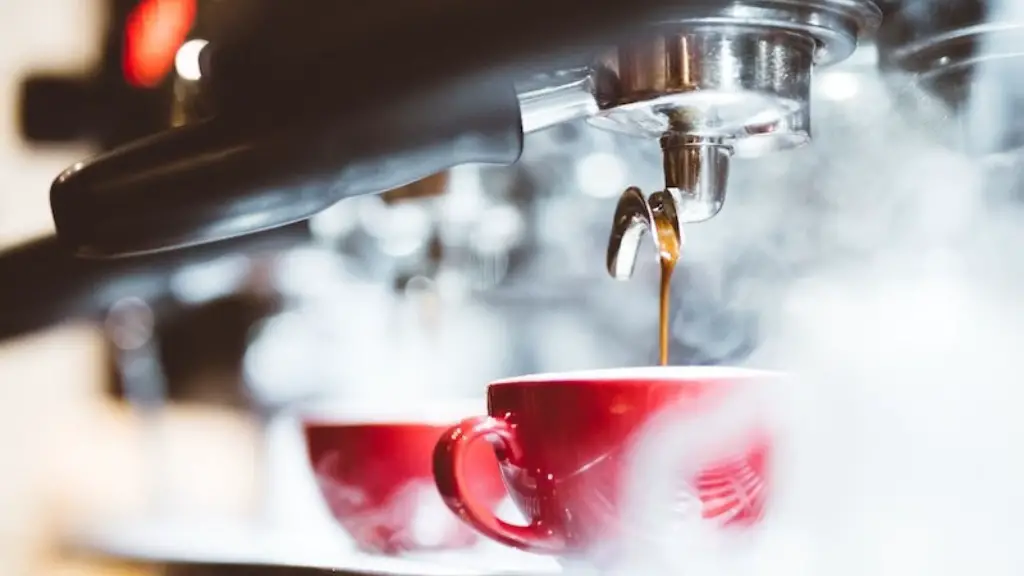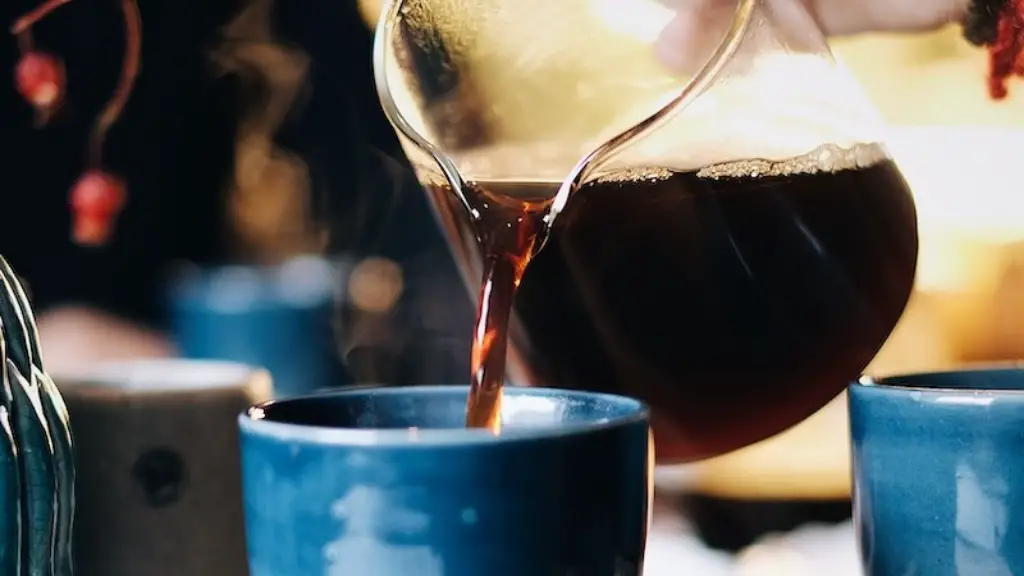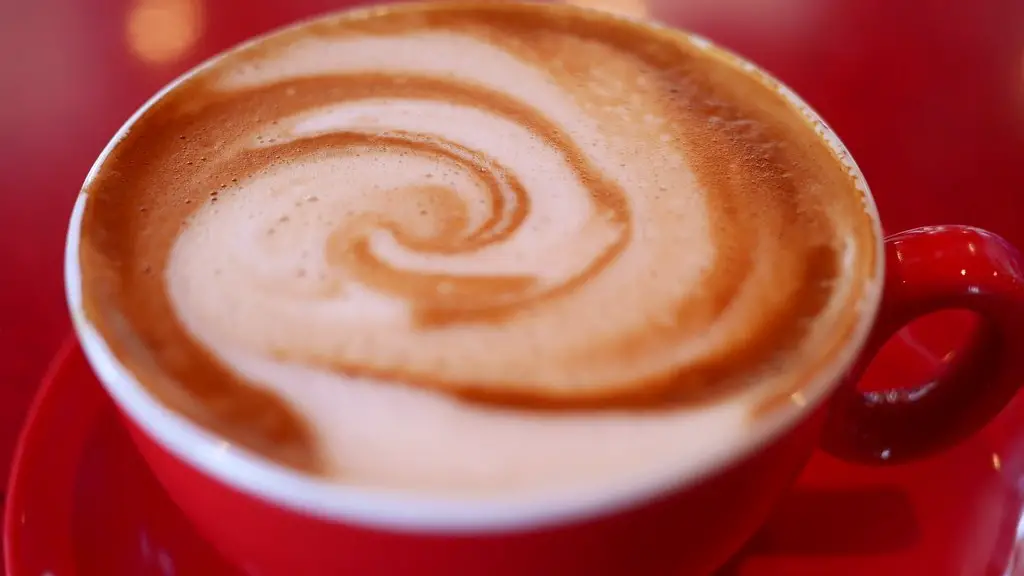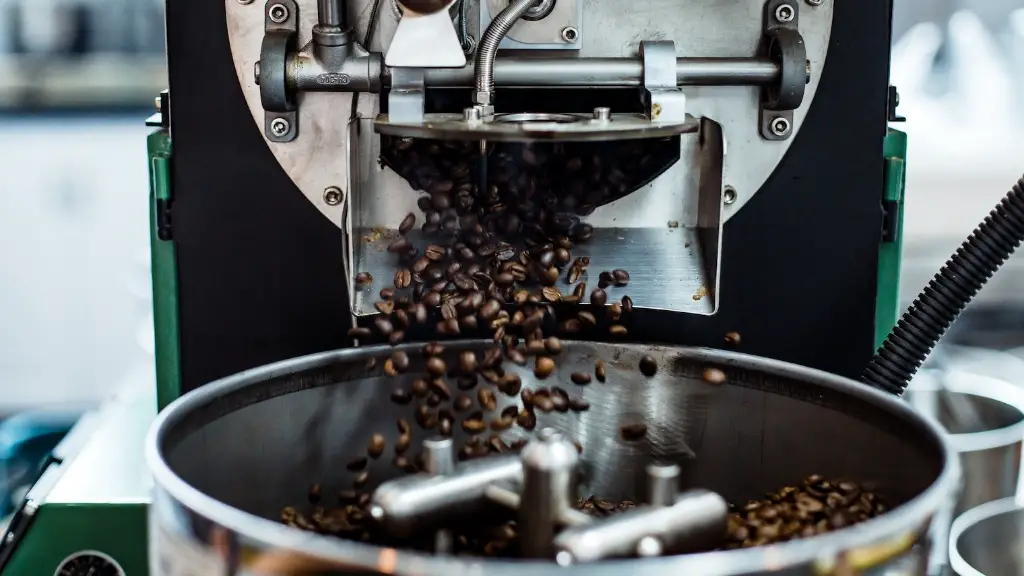Coffee – a dark, usually bitter and caffeine-filled beverage – is the most popular drink in today’s world. According to the International Coffee Organization, over 500 billion cups of coffee are consumed around the world every year – that’s nearly 2 cups of coffee for every person on the planet! But why do people drink so much coffee?
Caffeine is a stimulant that can help people stay alert,focused and motivated. A cup of coffee generally contains about 95mg of caffeine, which is equal to the amount of caffeine found in an energy drink (32oz). Though the amount of caffeine in coffee can vary, depending on the type of bean and brewing method, it is generally more potent than other caffeinated beverages like tea, soda, and energy drinks. As a result, drinking coffee can reduce fatigue and improve concentration and productivity.
Coffee also has health benefits, according to research. Studies suggest that drinking coffee can reduce the risk of certain diseases, such as type 2 diabetes, stroke and Parkinson’s. Coffee is also packed with antioxidants and other beneficial compounds, which may help protect the body from various diseases and strengthen the immune system. Those who drink coffee on a regular basis have been found to have lower rates of depression and an overall healthier lifestyle.
The stimulating effects of coffee can also serve as a mental escape. Whether it’s from the worries of the day or just getting away from the hustle and bustle, drinking coffee can help us relax and unwind. It gives us time to think and reflect, which can be especially comforting in difficult times. And that’s not to mention the positive physical effects that come from it, like feeling more alert and energized.
Perhaps the most important factor of why people drink coffee is because it tastes good. Everyone’s tastes are different, but coffee can be enjoyed in many different forms, from espresso to cold brew. Whether it’s a shot of espresso or a fancy latte, people of all ages can appreciate the flavor of coffee. The coffee industry also has an impressive variety of flavors, from mocha to vanilla, to satisfy everyone’s tastes.
With all these factors combined, it’s no wonder why so many people drink coffee. Not only does it stimulate the mind and body, but it also gives consumers a great taste experience with a variety of options. And with so many ways to enjoy coffee, it’s easy to see why it’s become so popular.
The Health Benefits of Drinking Coffee
Coffee’s stimulant effects can enhance mental alertness, enabling people to think more clearly with increased focus, productivity, and creativity. With all these positive effects, it’s no wonder that studying, writing, and various other tasks often seem easier after a cup of coffee. Additionally, research has also pointed to the potential health benefits of drinking coffee.
Studies conducted by the Harvard School of Public Health found that drinking a few cups of coffee a day can reduce the risk of type 2 diabetes, stroke, and even some types of cancer. Coffee is also abundant in antioxidants, which protect our bodies from damage caused by free radicals, molecules that are byproducts of chemical reactions in the body.
When it comes to cardiovascular health, coffee has a few potential benefits. Recent research has found that drinking one cup of coffee a day can help reduce the risk of stroke and heart disease. Coffee may also help lower blood pressure and allow for easier blood flow. All of these health benefits are further proof of why so many people choose to drink coffee.
The Role of Coffee in Mental Health and Well-being
The energizing effects of coffee also play a role in mental health and well-being. When we’re feeling sluggish or mentally exhausted, a cup of coffee can give us a quick boost of energy and help clear our minds. It can help improve our focus and concentration, enabling us to work more efficiently. In addition to its physical effects, coffee can help people relax and feel more connected with the moment.
Coffee may also help reduce the risk of depression. Studies indicate that drinking a few cups of coffee a day can reduce the risk of depression by up to 20%, likely because coffee contains an amino acid known to increase levels of serotonin, a chemical in the brain responsible for regulating mood and social behavior.
Coffee can also increase our overall sense of well-being. People often feel a deep sense of satisfaction when they enjoy a cup of coffee. From the enjoyment of the taste to the positive physical and mental effects it can have, coffee can be therapeutic in many ways.
Coffee Culture
Coffee culture is everywhere. Whether it’s a handmade latte or an instant cup of joe, coffee has become a staple of modern life. Large coffee chains like Starbucks and Dunkin’ Donuts have made coffee even more accessible and popularized a whole new coffee culture. People of all ages now flock to these stores daily to grab a cup of coffee and socialize.
At home, many people use modern coffee machines to make cups of coffee in their own kitchens. These machines allow for a variety of coffee options with minimal effort. Coffee pods, for example, enable people to quickly make espresso or latte drinks with the press of a button. Overall, coffee culture has expanded beyond just a hot beverage, now including modern brewing methods, coffee shops, and special events.
Buying Habits and Preferences
With so many coffee options to choose from, consumers have become increasingly conscious of what they’re buying. People now care about the where the beans come from, the brewing process, and the taste. With more knowledge comes more choices, allowing coffee lovers to pick and choose the type of coffee they want.
Organic coffee is also becoming more popular. Many of the world’s leading coffee producers are using organic, sustainable farming practices. This means the beans are grown without the use of pesticides and other chemicals, allowing for a healthier, more natural cup of coffee.
Instant coffee is also becoming more prevalent. Many consumers opt for instant coffee due to its convenience and accessibility. Most of the leading coffee brands now offer instant coffee that’s just as good as the fresh stuff, giving consumers more options than ever.
The Cost of Coffee
The rise of specialty coffee means prices are also on the rise. Depending on the area and the type of coffee, a cup can cost anywhere from a few dollars to several. For those on a budget, this could be a deterrent for those looking for a quick cup fix. Though buying the beans and brewing it at home is an option, it can take more time and effort.
The cost of coffee also depends on the type. Espresso, for example, tends to be more expensive than drip coffee. Specialty drinks such as lattes, cappucinos and frappucinos are also more expensive. But regardless of the type and cost, people still flock to coffee shops, proving just how popular and indispensable coffee is.
Conclusion
It’s no wonder why coffee is the most popular beverage in the world. Its energizing effects, health benefits, and great taste make it a favorite for people of all ages. Whether it’s for a quick pick-me-up or just a way to relax, coffee has become a part of modern life. With so many different types and flavors to choose from, it’s easy to see why people love it.





